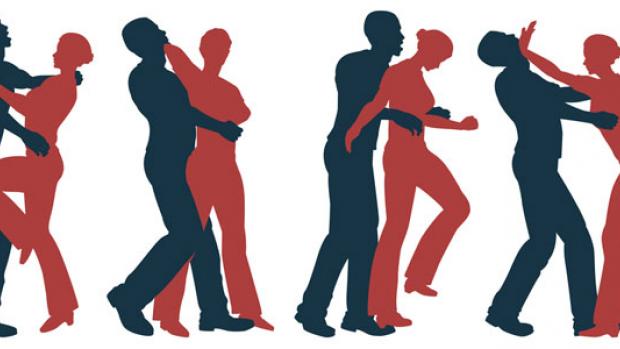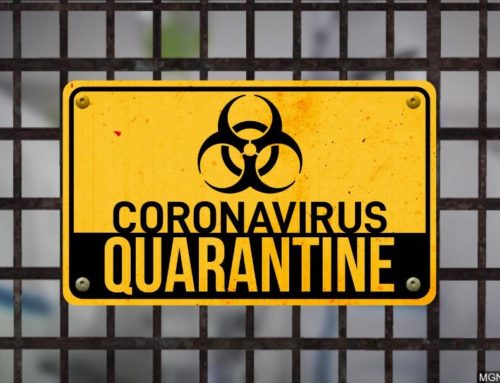At Schulze Law, we frequently remind people how life can change at a moment’s notice. Often times there is no warning of a potentially life changing event. There are a million ways your life can be impacted and any given moment. One of these ways is being attacked. Would you be able to defend yourself and your loved ones if someone were to attack you? It’s impossible to know for certain. It’s a question most of us don’t want to consider, but unfortunately, violence does exist. What is possible, is taking the proper safety precautions, learning self defense techniques and having an awareness on basic ways to protect yourself. Let’s take a look on ways to protect yourself from an attacker.
It can take a seasoned criminal less than seven seconds to size you up.
According to the Women’s Self-Defense Institute, only 10 percent of self-defense is actually physical. The rest of your defense mechanisms are being aware of your surroundings and taking preventive measures. Learn how to fight an attacker before they strike and how to react if things really do get physical in order to best keep yourself safe.
It is not your fault if you have been the victim of an attack or an assault. It is important to remember that an attack is a crime and you do not have to deal with this alone. The team at Schulze Law can help.
What is considered an attack/assault?
According to the National Center for Victims of Crime, an assault is a physical attack or a threat that causes fear of an attack. Victims of assault may be attacked by one or more people. An assault may include one or more types of harm, such as pushing, shoving, slapping, punching, or kicking. It may also include the use of weapons like knives, sticks, bottles, or bats. Common injuries from an assault include bruises, black eyes, cuts, scratches, and broken bones. Victims may even be killed during an assault. Even if the attack results in no physical injury to the victim, it still can be considered an assault.
There are many laws used to classify different kinds of assault. The classification can be based on injury, weapons used, or other circumstances of the crime. It can happen to anyone.
If you are a victim of assault, you might:
- Be shocked, angry, or afraid.
- Feel helpless because you could not prevent the assault.
- Have nightmares or flashbacks about the assault.
- Want to hurt the attacker(s).
- Think that you did something to cause the attack.
- Feel embarrassed about telling your family and friends.
- Feel any or all of the above, whether you were physically injured or not.
Every type of attack/assault is different. It requires you to use a combination of common sense and street smarts. A combination of avoidance, awareness and prevention is the best! For a predator to attack you, they need three things: intent, means, and opportunity. Denying them any one of those three things makes it virtually impossible for them to attack.
How To Prevent an Attack
Steps to avoid or prevent an attack are relatively simple, and in the majority of situations it doesn’t require physical self defense. If you follow some guidelines, the chance you’ll ever be attacked significantly decreases. Prevention is the always the best self-defense. Attackers, whatever their objectives, are looking for unsuspecting and vulnerable targets.
- Be a hard target
Attackers look for insecure, distracted and unsuspecting people. Don’t give off this vibe. Be confident, aware and pay attention. Just having a presence may intimate a potential attacker.
- Avoid dangerous places and people
Do not knowingly put yourself in harm’s way. Avoid areas that a known for being rough and where people are up to no good.
- Be aware of your surroundings
Pay attention and trust your gut!
- Use a buddy system
Criminals are smart enough to recognize that their chances of successfully overpowering a victim one-on-one are better than if they choose a two-to-one situation. Targeting more than one person means criminals are more likely to be identified, and less likely to be in control. Estimates show traveling with one additional person decreases the likelihood of being targeted by 70%, and with two additional people, 90%.
- Stick to populated and well lit areas
The more populated an area is, the less likely an attack will occur. Walk and park in areas that are under streetlights, or away from shadowy, dark places.
- Keep belongings secure. Avoid wearing flashy jewelry or handling money
To avoid unwanted attention, don’t broadcast that you have valuable items in your possession. A criminal will weigh the risk of apprehension with the benefit of the crime. If they see there’s a large payout, the more likely an attacker will be to take that risk.
- Keep your cell phone easily accessible and charged
Keep your cell phone handy to make emergency calls, but don’t let it become a distraction that keeps you from being attentive and aware to your surroundings.
- Avoid distractions
Put away distractions and focus on getting from point A to point B without being targeted. Although the high tech world we live in makes it easy to get distracted, avoid the temptations.
- Communicate plans to friends and family
Let people know where you are so if anything happens, they can act fast to help.
- Don’t look like a tourist and command a presence
Tourists are an easy target. Even if you are one, don’t act like it. Be confident in your behavior.
- Let them have it
Sometimes, it’s just not worth the risk. If an attacker wants money or one of your belongings, don’t risk being hurt or injured over it. Physical possessions can be replaced. Lives can’t.
- Stay sober
The use of intoxicating substances lowers inhibitions and impairs judgment, which is a dangerous combination in the wrong place and in the company of the wrong people.
What To Do If It Gets Physical
- Draw attention to yourself
This is the best way to scare off a criminal, as they will be afraid of getting recognized or caught. Do what you can to draw attention to the situation by screaming, yelling, waving arms, etc.
- Use any accessible weapons
Pull out any potential weapons you have on you. Potential weapons include pepper spray, pocket knives, keys, or heavy objects like textbooks, umbrella, pen, cell phone, or even hairspray. Keys can especially do a lot of damage. If an attacker comes at you, scratch his face or jab at his eyes with the keys.
- Aim for weak points
When fighting off an attacker, go for vulnerable points like eyes, throat, and knees. If they attack you from behind, stomp on the top of his foot. You should hit the groin last, as your attacker expects you’ll go there first.
- Use your elbow
Your elbow is way more effective than your fists. Make sure to bend your knees, twist your hips, and put your whole body into it as you swing your hooked elbow across their jaw.
- Always call the police
Once you have made it to safety, it’s important to notify the police of what happened. This may help save the lives of other potential victims. Describe the attacker’s physical appearance, location, gender, and style of dress to the police to help them track the person down as soon as possible.
Take-Aways from FunctionalDefense.org
- Avoid dangerous places.
- Be a bad target.
- Be aware of your surroundings.
- Watch out for warning signs and pre-attack indicators.
- Maintain a safe distance from potential threats and places they may wait.
- Create layers of security for your home.
- Escape to safety when you feel threatened.
- Evade a threat when you can’t completely escape.
- Use the “Back off!” command to dominate the situation if a threat gets close.
- Comply: Give in to an argument or give up your money if it will prevent physical violence.
- Never go anywhere with a predator. Never give him privacy and time with you or your family.
- If a threat is closing in, pre-position for your attack. Become the predator, and the predator becomes the victim.
The law protects your right to defend yourself, your property and others from attack. If you have been assaulted or if you are charged with an offence after attempting to defend yourself or someone else, you should consult Schulze Law as soon as possible.
http://victimsofcrime.org/
http://www.functionalselfdefense.org/
https://lifehacker.com/
https://www.wikihow.com/






